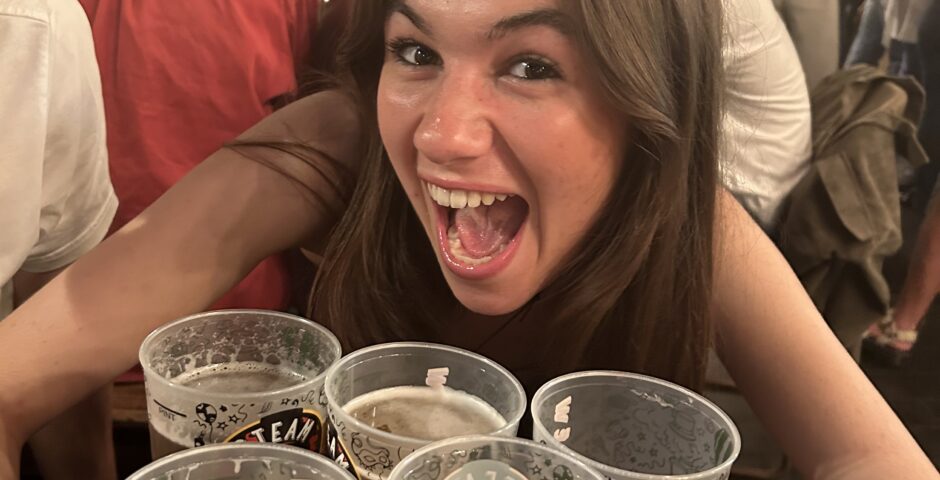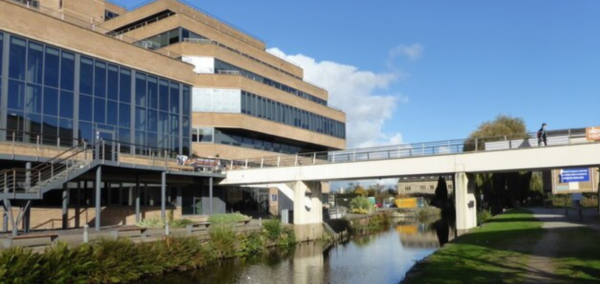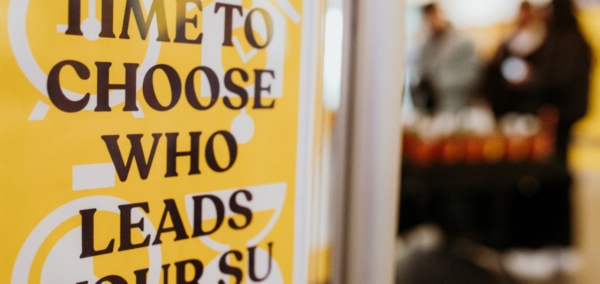
‘The day I graduate will be the first day of my sobriety’: Being sober at Bristol Uni
Investigating the correlation between ‘the university experience’ and a permanent state of drunkenness
It is now widely thought that Gen-Z does not drink as much as the generations that came before us. There is a common conception that we would rather go for brunch, take up running and spend copious amounts on TV subscriptions than sink 10 pints on a Friday night.
As the big media outlets report on our abstinence, I struggled to find this distinctly Gen-Z sober tendency in Bristol. Maybe I am looking in the wrong places, or perhaps it does not exist.

Last year, The Guardian reported that 28 per cent of young people in the UK do not drink, The Times reported in February that it could be closer to 40 per cent, and the BBC is under the impression that Gen Z “snub alcohol.”
As some seem to think, it’s insulting to argue that being sober would not constitute a “proper” university experience. However, for many, it is hard to conceptualise being a sober student. From tame pub trips on Tuesday afternoons, to casually drinking seven doubles on a Wednesday night, only to repeat again on Friday, and then perhaps have an afternoon recovery pint the next day; drinking is something that the average student is very good at.
This is not surprising given a culture on campus that is perhaps too accustomed to unhealthy levels of drinking. From our housemates pestering until we agree to a night out, to secretly nostalgic parents asking what we drink “these days”, to lecturers who make passing comments about heavy Wednesday nights, our reverence for alcohol is unquestioned. At best, this is mere complacency; at worst, it is a deeply dangerous narrative that skews the very real harm of alcohol.

I spoke to Emma*, a second year psychology student, who lived first year in the way many of us did, frequenting Brass Pig, pre-drinking to the max and battling raging hangovers on Thursday mornings, who is now sober.
She spoke to The Bristol Tab about what Bristol has to offer beyond alcohol, and the difficulties of doing uni sober.
When discussing her newly adopted sobriety, Emma said how being sober has made her feel she has “made the most out of Bristol as a city.” She spoke of her delight in having clearheaded Saturday mornings and having the funds to “try out many activities, cafes and restaurants that I wouldn’t have done otherwise.”
When asked what the biggest challenge of doing university sober, Emma revealed it was the friendships she had lost; friendships that are honed and deepened over pints, drunken club nights and scarcely remembered afters.
She explained how she “really valued those friendships; easy friendships that are built through light-hearted conversations over a pint.” I’m sure many of us can relate that some of our best friendships have either been founded or certainly made stronger through drinking.
I asked Emma about the automatic implication that heavy drinking is simply the “university experience”, a narrative so subconsciously pushed. She expressed her frustration at this, adding: “I feel like my uni experience, especially this year, is equally as exciting as people who aren’t sober.”
She added: “The expectation that you should be going out every night during Freshers’ Week is particularly harmful.
“So much of first year is based around pubbing and clubbing, I think doing first year sober would be much harder than second year.”
Whilst Emma saw alcohol as a key part of her first year, it hasn’t been a defining factor of her university experience. She expressed: “I think when I look back, I will consider it a very tiny part of my time here.”
Whilst many may find it hard to believe a university life without alcohol could be more fulfilling than one with it, the conversation revealed much about the relationships we forge at university; their dependency on alcohol and the social pressures that force us to engage in an unhealthy drinking culture.
Another student, Billie*, who goes out often (at least twice a week) expressed: “I can not wait until the day I graduate”, for it will be “the first day of never drinking again.”
Such explicitly reveals the pressure we feel to drink at university; a pressure that we are perfectly happy living under. When publications write of the beckoning sober consensus amongst our generation, it appears they are blind to the drinking culture that still dominates university; a drinking culture fostered through friendships, socials and accessibility to alcohol.
There have been attempts from the Students’ Union and student societies to encourage social gatherings without alcohol. For example, the history society is conscious of pushing coffee shop meetings over pub trips. However, compared to the corps of quarter-zip-wearing athletes storming the triangle on a Wednesday night after having to endure brutal drinking games, it seems obvious what Bristol students are more likely to engage in.

The sober activities are hardly advertised and dubbed as “uncool”. It is this narrative of alcohol abstinence as “unfun” that is the most dangerous. In truth, there is nothing uncool about protecting one’s health and one’s peace.
Speaking to my sober friends and coursemates, it was this idea that they stressed the most. They made it clear that they believe time at university is best defined by the people they spend it with, and not giving in to the FOMO that we have all felt at certain points. They focus on the delights of having a clear head on a Thursday morning, and they do not accept that their time at university is any less fun than mine.
The normalised rhetoric surrounding alcohol and our inability to separate conceptions of the university experience from a permanent state of drunkenness is dangerous – the question remains of whether this will change anytime soon, with Emma and others vouching for such change.





















